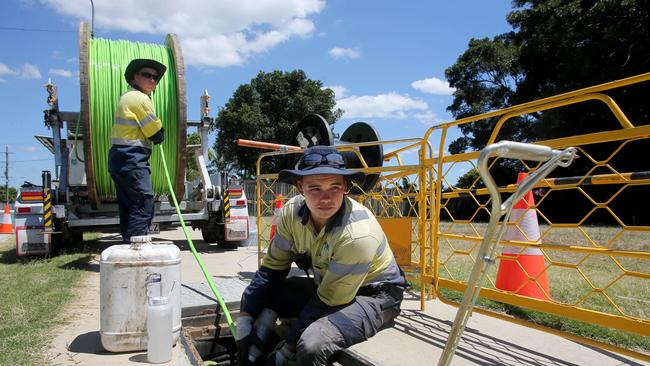NBN Co bristles at possible USO cost-shifting
NBN Co has warned it will not pick up Telstra’s universal service obligation for nothing.

The company rolling out the National Broadband Network is warning that proposals to overhaul the scheme that compensates Telstra to the tune of billions of dollars for providing basic phone services to the bush could add to the costs of Australia’s biggest infrastructure project.
The NBN Co says the Productivity Commission’s draft plan for phasing out the existing universal service obligation regime could drive more costs on to the NBN and add to the losses the NBN already faces in providing super-fast broadband services in regional and rural Australia.
In a new submission, the NBN Co says that any USO changes pushing it to provide voice services to all areas in Australia “could have material cost and timing implications for NBN’s deployment”.
The warning underscores the extreme political sensitivity around the NBN, which last year had to secure a $19.5 billion government loan to finish the rollout and will cost up to $54bn to build.
It is set to reignite the dispute between Telstra — which receives about $300 million yearly in funding to ensure everybody in the country can access a standard phone service and payphone — and its rivals, who have long condemned the USO as outdated.
The development comes as the NBN Co will today upgrade its website so that households and businesses will be able to find out whether they would get the “Rolls-Royce” fibre-to-the-premises network advocated by Labor or other technologies in the Coalition’s NBN model. Previously, the NBN Co had removed this, meaning people in the fixed-line footprint could not find out what technology they would get.
Last year, a Productivity Commission inquiry ordered by Scott Morrison said the USO was “outdated”, “anachronistic” and “needs to change”.
In a draft report, the commission recommended the existing USO be phased out, arguing that it would be made obsolete by a completed NBN that provided broadband and voice services to all Australians.
But the NBN Co argues that its network was not engineered to provide a universal voice service.
The network “has not been established to provide voice services to all locations, and changes to USO policy that resulted in NBN being expected to do so would increase the time and cost involved in NBN’s deployment”, the submission says. “It cannot be assumed that it is a costless or trivial exercise for NBN to take on activities which are currently the responsibility of other parties.”
The threat that greater investment could be needed is significant as the government faces pressure to avoid undermining the financial returns for the NBN; if the rate of return falls too low, the government would be forced to treat the project as a direct expense and this would add to the budget deficit.
The NBN Co designed its fixed-line networks — which will go to 10.9 million premises by the end of the rollout — to support legacy voice services.
But this was not the case for the fixed wireless and satellite services — which provide high-speed internet to the bush and urban fringes — because government policy has been for Telstra to provide USO voice services outside the fixed-line footprint.
If Telstra’s contractual obligations for the USO are wound back, “the likely effect would be the migration of services from Telstra’s networks, leading to an increase in demand for NBN’s fixed wireless and satellite services, driving more costs on to the NBN”, the submission says.
For instance, the NBN could need to invest in extra radio network equipment and base stations and install more antennas in remote locations. Any costs would have to be “acknowledged and explicitly funded”, the submission says.
Instead, the NBN says mobile networks could be used more. The NBN “believes a greater focus is required in the supply of universal voice services for those outside the NBN network’s fixed-line footprint”, a spokesman for the company said yesterday.
The NBN argues this would allow the USO to start being wound back in areas with mobile coverage. The submission points to estimates by the Bureau of Communications Research that NBN faces net losses of $9.8bn in net present value terms in providing broadband services over the fixed wireless and satellite networks.
“This is at the heart of NBN’s concerns with proposals that result in these networks being required to supply additional services,” the submission says.
In its draft report, the commission argued that NBN infrastructure would deliver a “high quality” voice service over fixed-line and fixed-wireless, but said there was a question about the adequacy of the service in pockets of the satellite footprint.
Optus has told the commission that it was a “regrettable policy misstep” that the USO was retained when reforms associated with the NBN were developed.
“There is little justification for maintaining the legacy Telstra copper network as the NBN is rolled out since customers are guaranteed access to both voice and data services over the NBN; in addition, they will also have access to high-quality voice and data services from mobile operators,” Optus has told the commission.



To join the conversation, please log in. Don't have an account? Register
Join the conversation, you are commenting as Logout